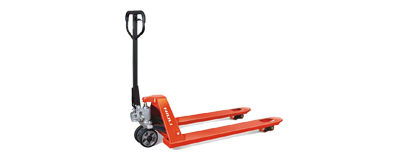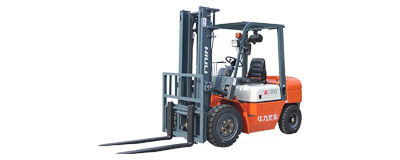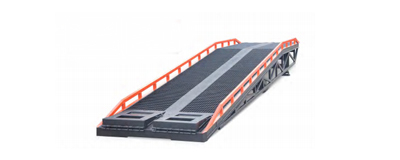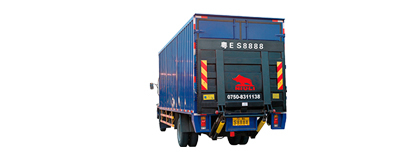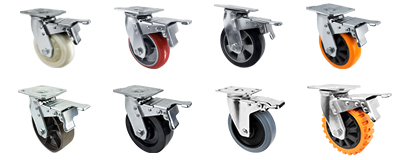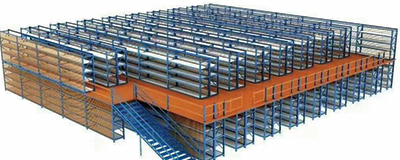Forklifts are at the heart of logistics, warehousing, and construction industries, making it easy to move bulky goods and materials. However, as sustainability becomes a priority across industries, businesses are questioning the environmental repercussions of these powerful machines. Forklifts, especially diesel forklifts, contribute to pollution and energy consumption. On the other hand, electric forklifts present a greener solution that has the potential to reshape the industry's environmental footprint.
This article will explore how forklifts impact the environment, comparing traditional diesel forklifts to electric models. We'll provide key insights into how businesses can make environmentally conscious decisions regarding their forklift fleets.
How Diesel Forklifts Impact the Environment
Diesel forklifts are widely used due to their robust power and ability to lift heavy loads, especially outdoors. However, they come with significant environmental drawbacks:
1. Carbon Dioxide (CO₂) and Other Greenhouse Gas Emissions
Diesel forklifts run on fossil fuels, burning diesel to generate power. This process releases large amounts of CO₂, contributing directly to global warming. Additionally, their exhaust contains methane (CH₄) and nitrous oxide (N₂O), two other potent greenhouse gases.
Data from the Environmental Protection Agency (EPA) shows that for every gallon of diesel fuel burned, approximately 22 pounds of CO₂ are emitted. For forklift-intensive industries, this translates into a hefty carbon footprint.
2. Air Pollutants
Diesel forklifts release particulate matter (PM) and nitrogen oxides (NOx), heavily polluting the air. These pollutants are linked to respiratory health problems, including asthma and other lung conditions, particularly in indoor workspaces without adequate ventilation.
3. Noise Pollution
Diesel engines are notoriously loud. Prolonged exposure to high noise levels can affect workers' hearing and create an uncomfortable working environment. This, in turn, reduces overall workplace sustainability.
4. Fuel Production and Transport
The environmental impact doesn’t end with emissions; extracting, refining, and transporting diesel also significantly contributes to environmental degradation. These upstream activities add to diesel forklifts' already overwhelming carbon footprint.

Why Electric Forklifts Are Considered Greener Alternatives
Electric forklifts present businesses with a cleaner, quieter, and more sustainable solution. But how do they stack up against traditional diesel models in terms of environmental impact?
1. Zero Tailpipe Emissions
Unlike diesel forklifts, electric forklifts run on rechargeable batteries. They produce zero tailpipe emissions, which makes them a vital tool in reducing a company’s carbon footprint. For warehouses and indoor spaces, this eliminates harmful exhaust fumes, ensuring a safer work environment.
2. Energy Efficiency
Electric forklifts boast higher energy efficiency than diesel forklifts. Electric motors convert a greater percentage of electricity into usable power, leading to reduced energy waste. On average, electric forklifts consume less energy per hour of operation compared to diesel alternatives.
3. Reduced Noise Pollution
Since electric forklifts operate with quieter electric motors rather than internal combustion engines, they create much less noise. This fosters a more comfortable and productive working environment, particularly in facilities requiring prolonged forklift use.
4. Lower Operating Costs and Sustainability
Electric forklifts use batteries, which, when paired with renewable energy chargers, can further minimize environmental impact. Over the lifespan of a forklift, the operational costs for charging are often lower than the cost of diesel fuel.
Even the batteries themselves are becoming more sustainable. Lithium-ion battery technology significantly prolongs the life cycle of forklift batteries compared to older lead-acid options, reducing the waste associated with frequent battery replacements.
Challenges of Electric Forklifts
While electric forklifts have numerous environmental benefits, no technology is entirely without challenges. Businesses must weigh these factors when considering a transition from diesel to electric options.
1. Battery Production and Disposal
The production of lithium-ion batteries, commonly used in electric forklifts, involves environmentally taxing processes such as mining for lithium and other rare earth metals. Disposal and recycling of these batteries also require specialized processes to prevent environmental harm.
2. Limited Power for Outdoor Use
Diesel forklifts still dominate in heavy-duty and outdoor tasks. Electric forklifts, while improving, might not yet offer the same power and adaptability in extreme weather conditions or on uneven terrain.
3. Charging Infrastructure
Switching to electric forklifts often requires investments in charging stations, which can be a hurdle for smaller companies to overcome. Businesses need to assess upfront costs carefully before making the move.
Adopting Sustainable Forklift Practices
To achieve maximum environmental benefits, businesses can implement sustainable practices in their forklift use:
1. Transitioning to Electric Models
Whenever possible, businesses should replace older diesel forklifts with electric forklifts. While the initial investment may seem high, the operational savings and environmental benefits often offset the costs in the long run.
2. Using Renewable Energy for Charging
For electric forklifts, using solar or wind energy systems to charge batteries can significantly lower their overall carbon footprint.
3. Regular Maintenance
Properly maintaining both diesel and electric forklifts ensures optimal performance and energy efficiency. For diesel forklifts, regular maintenance can minimize greenhouse gas emissions, while proper care for electric forklifts extends their battery life.
4. Right-Sizing Fleets
Analyze your company’s forklift usage patterns to identify opportunities for minimizing fleet size. Running fewer forklifts, whether diesel or electric, means reduced overall environmental impact.
5. Encouraging Recycling
When upgrading fleets, recycle batteries, engine parts, and other components. Many manufacturers now offer recycling programs to help reduce landfill waste.
Why Businesses Should Act Now
Governments worldwide are implementing stricter environmental regulations to combat climate change, including restrictions on diesel-powered machinery. Staying ahead of these changes by transitioning to electric forklifts and adopting greener technologies can future-proof your business against fines and other compliance costs.
Additionally, customers are becoming more environmentally conscious. Companies with visible sustainability efforts, such as integrating electric forklifts, are better positioned to attract eco-focused consumers and partners.
Moving Towards a Greener Future
Forklifts are an essential tool for businesses, but their environmental footprint cannot be ignored. Diesel forklifts, while powerful, pose several environmental concerns ranging from high carbon emissions to noise pollution. On the other hand, electric forklifts offer a sustainable alternative with zero emissions, quieter operation, and lower energy consumption.
The shift to greener forklift options requires investment and planning but makes a significant impact on sustainability efforts. By transitioning to electric forklifts, using renewable charging options, and maintaining a sustainable fleet, businesses can play an important role in reducing environmental harm.
Looking for high-performing electric forklifts to modernize your fleet? Start today by researching options that align with your company’s needs and take a step toward sustainability.
Electric forklifts
forklifts
Electric forklift
English
العربية
Français
Русский
Español
Português
Deutsch
italiano
日本語
한국어
Nederlands
Tiếng Việt
ไทย
Polski
Türkçe
አማርኛ
Bahasa Melayu
ဗမာစာ
Filipino
Bahasa Indonesia
magyar
Română
Čeština
қазақ
Српски
हिन्दी
فارسی
Kiswahili
Slovenčina
Slovenščina
Norsk
Svenska
українська
Ελληνικά
Suomi
עברית
Dansk
اردو
বাংলা
Hrvatski
Eesti keel
සිංහල
Oʻzbekcha
latviešu
Euskara
Български
Català
ქართული
Hausa
íslenska
Lietuvių
Lëtzebuergesch
ਪੰਜਾਬੀ

